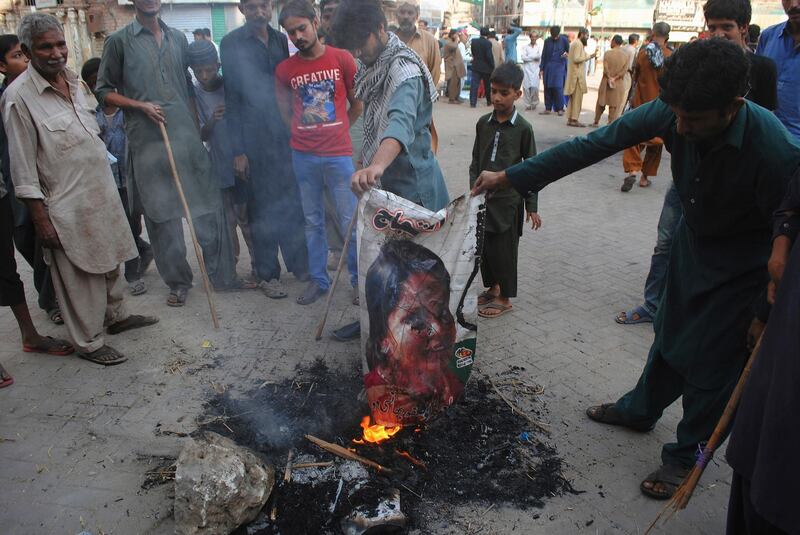"We are at the losing end, even after winning the case." So spoke the husband of Asia Bibi, the Christian mother-of-five whose death penalty conviction for blasphemy was overturned by Pakistan's Supreme Court last week. Amid rumours she has fled Pakistan, the case has divided a nation and speaks to deep societal fractures that go beyond one family being torn apart for a decade and now fearing for their lives.
This, in a nutshell, is one of Prime Minister Imran Khan’s greatest tests, just months into his tenure. The former cricketing hero ran a campaign based on hope and progress but now finds himself caught between the future and the past – forced to assuage deeply conservative elements in Pakistan while trying to usher in a more peaceful future. Ms Bibi’s fate has unwittingly become an arena for that struggle. And as a result she finds herself at the mercy of forces far beyond her control.
The case has drawn battle lines in Pakistan and led to the murder of two prominent politicians who expressed support for Ms Bibi. When the Supreme Court voted last week to overturn her conviction and ordered her release, hardline Islamist groups lined the streets, blocking motorways and bringing parts of Lahore, Karachi and Islamabad to a standstill.
So febrile was the atmosphere that among the cries for her to be hanged, one Islamist leader reportedly said that all three supreme court judges “deserved to be killed”. It reflected the controversies surrounding blasphemy in Pakistan, which is often deployed by extremists to stir up hatred between people of different faiths.
Whatever the basis of the case, due process must prevail. Ms Bibi has served her time in prison and the Supreme Court's ruling must be respected. Governments and judges should never be swayed by the chants of a baying mob. Yet Mr Khan's administration quickly struck a deal with the Tehreek-e-Labaik (TLP) party, which led the protests, imposing a travel ban on Ms Bibi and facilitating a potential re-evaluation of her acquittal.
This sets a dangerous precedent, implying the administration will capitulate if there are enough angry chants, no matter how unjustified.
Moreover, it says little of the country’s security situation that Ms Bibi’s only opportunity to live a life free from harm or threat lies overseas, even after she has served her sentence. Meanwhile, Italy’s right-wing populist government has offered to assist her, suggesting her case could be politicised even more. Ms Bibi cannot be used as a poster girl for a campaign fuelling Islamophobia. But Mr Khan’s Faustian pact with the TLP is equally to blame, feeding a narrative of religious hatred and division and demonstrating just how much work the prime minister must do to shepherd his country into a more diverse, tolerant future.





